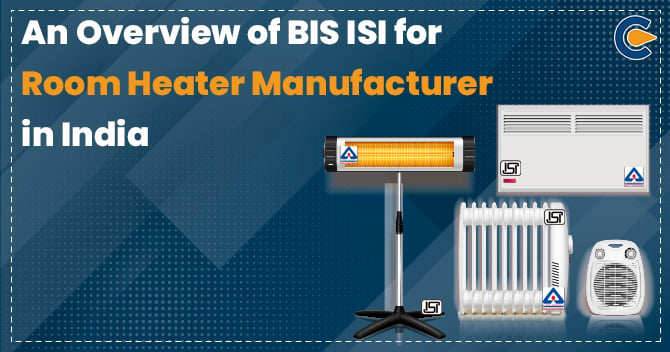The compulsory Registration Scheme is referred to as CRS. In 2012, the Department of Electronics and Information Technology unveiled this plan. All electronic products that are listed as required by the Mandatory Product List for BIS (CRS), including printers, RFID/smart card readers, Bluetooth speakers and headphones, earbuds, CCTV cameras, secondary cells and batteries, and other similar devices, must be registered with BIS. To sell their goods in Indian marketplaces, manufacturers both domestic and foreign must seek this CRS certification.
As opposed to BIS/ISI Certifications, BIS Registration does not require a BIS Officer to conduct a factory or laboratory inspection. It generally takes 20 to 25 working days to complete the BIS Registration process. The original term of a BIS registration is two years, after which it may be extended for an additional two to five years prior to its expiration date.
Merits of Compulsory Registration Scheme (CRS)
Some of the merits of the Compulsory Registration Scheme are:
- The certification mark confirms that the product is made in accordance with the specified Indian Standards, thus enhancing its quality. Customers can recognize high-quality items with the aid of the standard mark.
- In accordance with updated environmental regulations, BIS modifies its standards. In order to make the goods and the production process more sustainable and eco-friendly, it adopts green standards.
- The sellers can take local brands to international markets, and the BIS Certification helps them persuade consumers in new markets about the quality of their products.
- They acquire a competitive edge as customers favour goods that are established on a national standard against a local non-certified item.
- You may use it to reassure the authorities regarding the material utilized in this product and the standards adhered to throughout its creation.
Other Schemes under BIS
Other important schemes under BIS in India are:
Indian Standards Institute (ISI)
Indian Standards Institution is referred to as ISI. The product’s compliance with the BIS Standards and Safety is guaranteed by the certificate, which is part of the BIS program. It was established on January 6th, 1947, with the goals of implementing a certification mark scheme and protecting consumer interests.
As the economy developed over time, a more capable institution known as the Bureau of Indian Standards (BIS) was founded to offer industrial product standardization. A product that has been certified as high-quality still has the ISI label.
When an Indian product has the ISI mark, it means that it has been verified for quality assurance and satisfies all requirements set out by the Indian government. The ISI mark may only be provided by BIS after appropriate review, analysis, documentation, etc.
Foreign Manufacturers Certification Scheme (FMCS)
The Bureau of Indian Standards (Conformity Assessment) Regulations, 2018 and the BIS Act, 2016 provide BIS with the ability to grant a license to a foreign producer so they may sell goods in the Indian market.
A company may only receive an FMCS BIS certificate if its product meets Indian Standards. However, some guidelines could be required or optional. BIS The FMCD department in India issues FMCS Certificates to manufacturing plants that are situated abroad. These units are subject to factory audits to see if the producer is adhering to all BIS-illustrated standards.
Nominating an Authorized Indian Representative (AIR) is another requirement for international applicants. Therefore, for foreign manufacturers to continue selling and exporting their goods in the Indian market, they must get a BIS Certificate for Import in India under the FMCS Scheme.
Impact of Compulsory Registration Scheme (CRS) on businesses
The Compulsory Registration Scheme has several impacts on businesses in India:
1. Educating Consumer Decisions:
Knowledgeable consumers are able to make well-informed decisions when they possess knowledge about the safety and quality of products. Knowledge enables people to choose products that are guaranteed to be risk-free and to adhere to approved standards.
2. Market enter:
By meeting the BIS criteria, manufacturers may enter the Indian market and build their trust there.
3. Propelling Industry Progress by Constant Quality Improvement:
Producers strive to raise the calibre of their goods to meet specified requirements. Fulfilling these BIS requirements aids the firm in advancing industrial advancement.
4. Prevention of Counterfeiting:
The program serves as a disincentive to the sale of fake and inferior goods.
5. Growth of the Domestic Industry:
By fostering the expansion of the Indian industry, the BIS Compulsory Registration Scheme encourages innovation and homegrown manufacturing.
Importance of Compulsory Registration Scheme in Ensuring Product Quality and Safety
One important tool for ensuring the safety and quality of goods on the market is the Bureau of Indian Standards (BIS) Compulsory Registration Scheme (CRS). This regulatory structure protects consumers by acting as a strong mechanism to guarantee that producers follow established criteria.
The potential of a compulsory registration scheme to reduce possible dangers connected with subpar or dangerous products is one of its greatest advantages. By requiring registration, the BIS create a marketplace where only goods that satisfy predetermined quality norms are made available to customers. This is achieved by establishing a strict assessment procedure that involves extensive testing and certification. This increases the industry’s overall reputation while protecting end consumers from potential harm.
Moreover, a compulsory registration scheme promotes product standardization, which makes a variety of products more compatible and interoperable. Standardized goods help to simplify production procedures, which lowers the possibility of errors and improves supply chain efficiency overall. To put it simply, the compulsory registration scheme is essentially a gatekeeper for regulations as well as a catalyst for improving the calibre, security, and dependability of goods, which eventually creates a market where customers feel empowered to make decisions based on information.
Frequently Asked Questions
For which item BIS is required?
Before being introduced or imported into the Indian market, all types and brands of low-voltage switchgear and control gear, including switches, disconnectors, switch disconnectors, and fuse-combination units, must have a BIS registration under IS/IEC 60947 (Part-3).
In BIS certification, what does CRS mean?
The Ministry of Electronics and Information Technology originally implemented the Compulsory Registration Scheme, or CRS, for electronic and IT products.
To obtain a BIS certificate, who must apply?
Any company with a legal entity in India or elsewhere that manufactures, assembles, or provides services may apply with the necessary paperwork to verify their name and address.
Is it required for all items to be BIS-certified?
The BIS certification program is mostly optional. However, the central government has mandated conformity with Indian Standards for a variety of items due to a number of factors.
What is the CRS scheme?
Manufacturers based in India or abroad who produce any of the goods listed in the Compulsory Registration Order are eligible to apply for registration under the Compulsory Registration Scheme (CRS). Manufacturers who produce goods at several sites are required to apply for separate registration numbers.
Is a BIS necessary for a CCTV system?
In India, BIS registration is required for CCTV cameras and recorders; noncompliance with the rules may lead to legal action. MeitY launched the CRS program with the intention of regulating the quality of electronics that are produced and imported into India.
What makes a BIS certificate necessary?
For these items to be introduced and sold in the Indian market, BIS Certification is required. The Bureau of Indian Standards (BIS) issues BIS Certification India or BIS Registration to guarantee the dependability, safety, and quality of items that meet Indian Standards (IS).
What does the CRS mark mean in its entirety?
Products must be registered under the CRS and have the CRS mark if the Indian government notifies them that they fall under the Compulsory Registration Orders. The Self Declaration of Conformity serves as its foundation.
What is the primary goal of the process for product certification?
It seeks to guarantee that the general public is provided with risk-free, high-quality products. Through the product certification program, BIS authorizes producers to use the standard mark on their goods and market them in India.
Read Our Article: Understanding The Importance Of The BIS CRS Certificate













